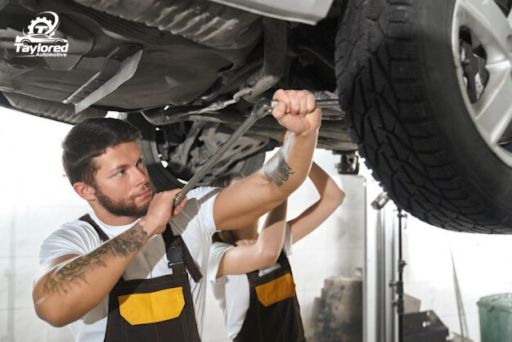Brakes vs. ABS: Which Is Safer for Your Vehicle?
Introduction
In the fast-paced world of today, safety is paramount when it comes to our vehicles. Whether you're a seasoned driver or a new one, the question of which auto electrical repair system is safer for your vehicle arises. Brakes and Anti-lock Braking Systems (ABS) both play pivotal roles in ensuring your safety on the road. We will explore the key differences between these two systems and help you make an informed decision. Let's dive in!
Brakes: The Fundamental Stopper
When we talk about traditional brakes, we're referring to the conventional braking system that has been a staple in vehicles for many years. These brakes operate through a hydraulic system that transfers force from your foot to the brake pads, thereby clamping down on the brake rotors and causing the vehicle to slow down or stop. Here are some pros and cons of conventional brakes:
Pros of Traditional Brakes
- Cost-Effective Maintenance: Traditional brakes are generally less expensive to repair and maintain.
- Simplicity: The straightforward design of conventional brakes makes them easier to troubleshoot and fix.
Cons of Traditional Brakes
- Prone to Locking: Traditional brakes have a tendency to lock the wheels, leading to skidding, especially in slippery conditions.
- Longer Stopping Distances: It may take longer to bring your vehicle to a halt, which can be a significant concern in emergencies.
ABS: A Technological Leap
ABS, on the other hand, is a technological marvel that revolutionised vehicle safety. ABS works by rapidly pulsing the brakes to prevent wheel lock-up. This ensures that the tires maintain traction with the road, even during hard braking. Let's explore the advantages and disadvantages of ABS:
Pros of ABS
- Enhanced Control: ABS prevents wheel lock-up, allowing the driver to maintain control during emergency braking situations.
- Reduced Stopping Distances: ABS helps to shorten the stopping distance, which can be life-saving in critical moments.
Cons of ABS
- Costlier Repairs: ABS systems are more complex and, therefore, can be more expensive to repair.
- Reliance on Technology: In case of system failure, ABS can become a liability rather than an asset.
Making the Choice
Now that we've dissected both braking systems, the question remains: which one is safer for your vehicle? The answer isn't one-size-fits-all, as it depends on your driving style, the road conditions you encounter, and your budget.
If you're looking for a budget-friendly option and have a keen sense of control over your vehicle, traditional brakes may be sufficient. On the other hand, if you want an added layer of safety, especially in slippery or emergency conditions, ABS is the way to go.
Remember, no matter which system you choose, regular maintenance and responsible driving are essential for your safety and the safety of others on the road.
Conclusion:
In the eternal debate of "Brakes vs. ABS," the answer lies in your unique circumstances and preferences. While traditional brakes are cost-effective and straightforward, ABS provides enhanced control and safety during critical moments. So, the choice is yours!
For more information on auto electrical repair and finding a car electrical shop in Dysart, visit Taylored Automotive, your trusted service centre. Safety on the road begins with the right choice of braking system.


.jpg)
Comments
Post a Comment